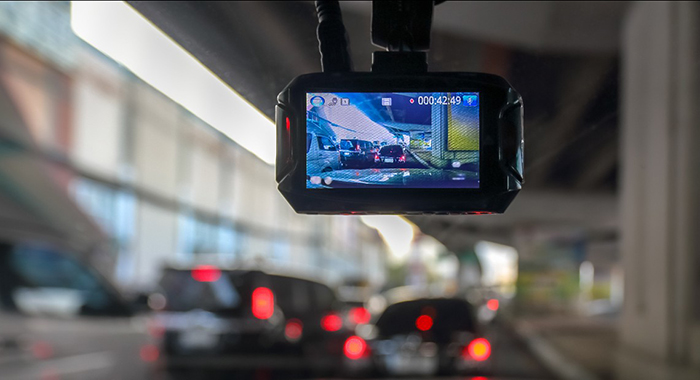By Observer
Almost everyone in SVG is aware of the challenges the country is facing with crimes of all nature. Recently we heard the announcements made by Prime Minister Gonsalves at the Independence Parade, regarding certain crime-fighting measures. Before that we saw reports where Taiwan donated CCTV cameras, and mobile cameras to the police, as well a vehicle licence plate identification system.
Anything that could possibly help the crime situation is welcomed at this point, but these ones (CCTV and mobile police cameras) put the onus on the government to keep them functioning. Perhaps there is enough evidence to argue that the government does not have a good track record when it comes to keeping things properly and timely maintained and functioning.
Having said that, how about making it mandatory, as part of the vehicle registration process, for all public transportation (vans, buses, and taxis) to be mounted with front and rear dashcams? Is it time to make them partners in this effort against crime? What could be the downside of this? There shouldn’t be any concerns for privacy, as there is no expectation of privacy once you are in a public space. Some van drivers may bark at the idea, as those who exhibit an unruly behaviour on the roadways could now be recording themselves doing so. On the other hand, they may get to prove who is right or wrong in the event of an accident.
Now, one may argue that even if they are mandated to have dash cameras, how do you make sure they are on and functioning? Here is where the government must get creative. For one, it can be made part of the vehicle inspection process to have functioning cameras mounted. Also, make it clear that the police can inspect the cameras at any time or during a traffic stop, or after a vehicular accident, and that the footage can be extracted and viewed at any time. Failure to have proper functioning cameras, leads to a fine. As another example, if at the time of an incident (drive-by shooting for example) and a public transport vehicle is known to have been in the area at the time, and upon inspection, cameras are found to not be functioning, it leads to a fine.
Though dashcams usually cost less than US$100, it’s an added cost to have them and to keep them functioning, along with normal mechanical maintenance. Making them import duty free may assist in keeping the cost manageable. In addition to that, offer some other form of incentive such as a reduction in registration fees. Perhaps other creative measures can be used also. For example, to keep maintenance cost down, maybe vehicles with a certain pattern of registration number are required to have their cameras on in the first half of the day, and the others in the second half of the day and so on; or maybe some (those whose registration is due in the first six months of the year?) are required to have cameras mounted in the front while the others are required to have it mounted in rear. There are different ways to slice and dice this to make it work in assisting with the fight against crime, in addition to being able to better monitor the unruly behaviour on the road by some drivers.
These vehicles are almost always on the move. With dashcams, there’s a good chance they will capture enough footage to tell the story of an incident, depending on the circumstances, thereby assisting the police service with its efforts to solve. It also takes the government out of the maintenance business. The vehicle owners will do a better job of keeping these cameras functioning, once they are mandated to do so, with enough incentive. Maybe even private vehicle owners should be made partners in this as well. Perhaps they can be provided with similar incentives to have cameras mounted, in exchange for allowing the footage to be shared with the police in the event of an incident.
CCTV cameras mounted on stationary buildings around town is one thing, but I think it changes the game significantly if some arrangement can be made to have cameras mounted on vehicles, with the footage being accessible by the police. Think of the kind of footage that could be captured.
The opinions presented in this content belong to the author and may not necessarily reflect the perspectives or editorial stance of iWitness News. Opinion pieces can be submitted to [email protected].






